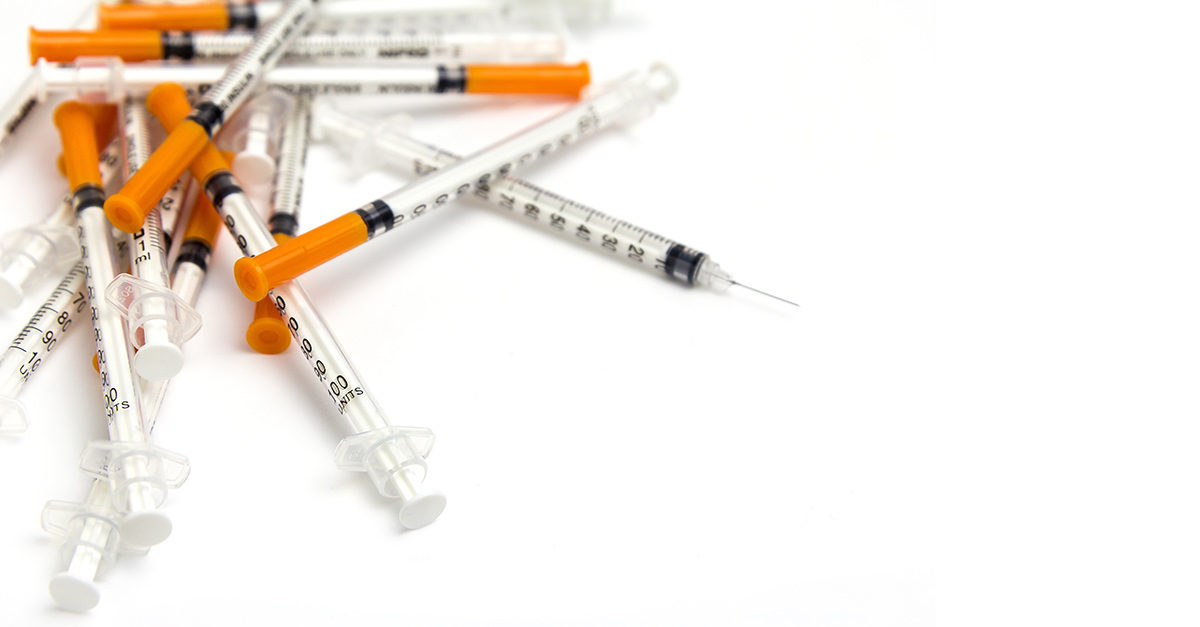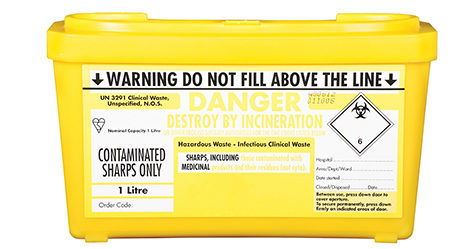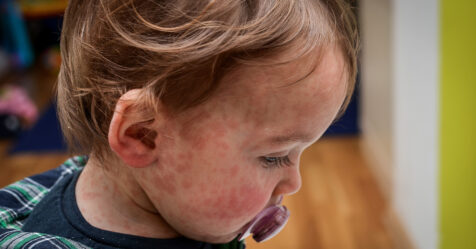Workers cleaning restrooms, medical facilities, and even homes risk being being stuck by a used needle or other sharps, such as syringes, scalpels, or scissors. The proper way to dispose of these items is to deposit them in a red or yellow sharps container specially designed for hazardous waste. However, sharps sometimes end up in trash cans, on restroom surfaces, or on the floor.
Coming in contact with a used sharp puts workers at risk of contracting a disease caused by bloodborne pathogens, such as hepatitis B, hepatitis C, or human immunodeficiency virus (HIV). Don’t risk an infection. If you or one of your workers is stuck by a sharp, or get blood or other potentially infectious materials in the eyes, nose, or mouth, stop working immediately and follow these tips from the U.S. Centers for Disease Control and Prevention:
- Wash needlesticks and cuts with soap and water
- Flush splashes to the nose, mouth, or skin with water
- Irrigate eyes with clean water, saline, or sterile irrigants
- Report the incident to a supervisor
- Immediately seek medical treatment.
Click here for more information on dealing with hazardous waste injury prevention and other employee safety issues.




